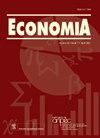The Scars of Civil War: The Long-Term Welfare Effects of the Salvadoran Armed Conflict
IF 1.4
Q3 ECONOMICS
Economia-Journal of the Latin American and Caribbean Economic Association
Pub Date : 2023-11-08
DOI:10.31389/eco.414
引用次数: 0
Abstract
This paper estimates the long-term effects on human capital accumulation and subsequent labor market outcomes of in utero and early childhood exposure to the civil war in El Salvador (1980–92), the second longest and deadliest civil conflict in Central America. Identification is obtained from spatial and intertemporal variation in the intensity of the conflict drawn from historical archive data comprising records of human casualties, disappearances, and refugees. The results show that people born in highly violent areas during the civil war saw a reduction in their probability of being employed by 6 percentage points, and of getting a high-skilled job by 5 percentage points, 20 to 30 years hence. The civil war also reduced their education by 0.8 year, as well as their enrollment and literacy rates. Subgroup analysis indicates that exposed males and indigenous groups experienced the largest losses in human capital and had weaker performance in the labor market. JEL Classification Codes: D31, I00, J13内战的伤痕:萨尔瓦多武装冲突的长期福利影响
本文估计了萨尔瓦多内战(1980 - 1992)对人力资本积累和随后的劳动力市场结果的长期影响,萨尔瓦多内战是中美洲第二长、最致命的内战。从历史档案数据(包括人员伤亡、失踪和难民的记录)中得出的冲突强度的空间和跨时间变化,可以获得识别。结果显示,在内战期间出生在高度暴力地区的人,在20到30年后,他们被雇用的可能性降低了6个百分点,获得高技能工作的可能性降低了5个百分点。内战也减少了他们0.8年的教育,以及他们的入学率和识字率。亚组分析表明,受影响男性和土著群体的人力资本损失最大,在劳动力市场上的表现也较差。JEL分类代码:D31、I00、J13
本文章由计算机程序翻译,如有差异,请以英文原文为准。
求助全文
约1分钟内获得全文
求助全文
来源期刊
CiteScore
0.40
自引率
0.00%
发文量
0
审稿时长
24 weeks

 求助内容:
求助内容: 应助结果提醒方式:
应助结果提醒方式:


